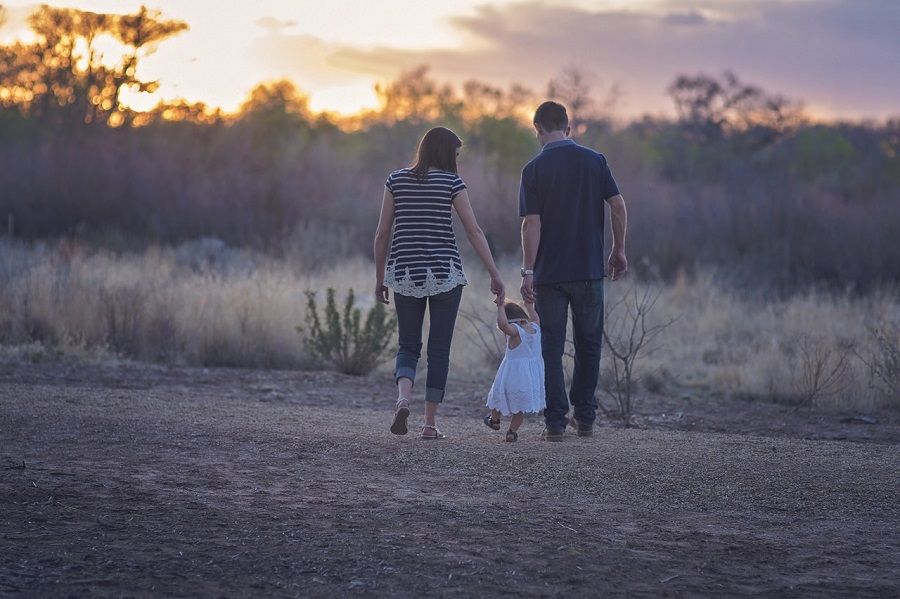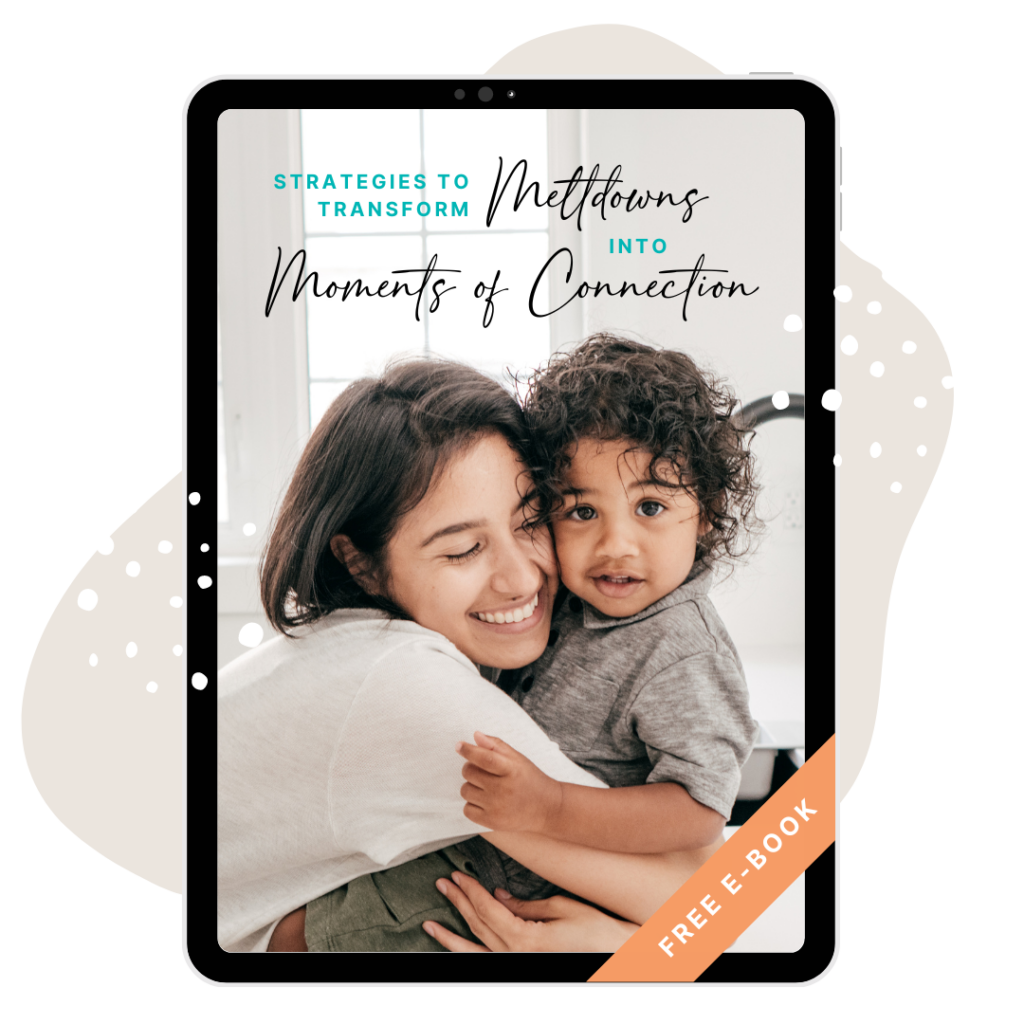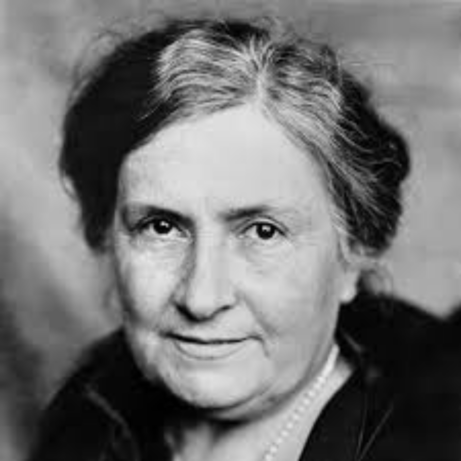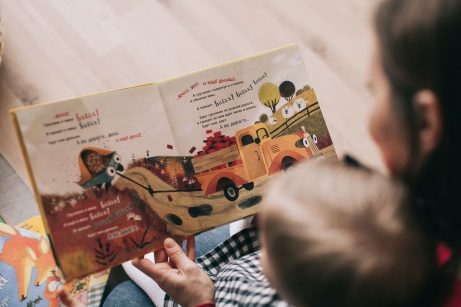On Being the Parent

So much of what we discuss here on this blog – and in Montessori in general – focuses on the child: studying, understanding and responding to their needs. However, what of the other side of the conversation: the parents, and other adults in the child’s life?
This is the eight and last in our series on communication, Speaking the Child’s Language. In this last installment, we take a bit of a departure from the previous ones: instead of concrete, hands-on tips and strategies, I’ll try to offer a shift in philosophy, and food for your own thought. I believe there is a factor in parenting that we are all too often discouraged from pursuing and discussing. Instead of one-size-fits-all solutions, I hope this article inspires parents to search for the balance that best suits them and their family.
During one of the lectures of my teacher training, our trainer stopped to call our attention to the concept of the family and its functions. The family serves the society, by enabling procreation and the raising of children, new citizens; but more importantly, the family serves its own members. It protects, supports, loves them; it enables their further development and growth as human beings. And…
“Never forget that these functions of the family are for all of its members: children, parents, siblings and more. We all are given the task to enrich and change each other’s lives for the better. It is not the parent’s job to give and not receive anything in return. Each member of the family has the right to have their needs met, and to contribute towards fulfilling the needs of their loved ones.”
It is a simple enough idea, but over time I’ve come to appreciate how profound it is, and how deeply it contrasts with many of cultural expectations and prejudices. All too often, in practice the adult is placed in a dominant position over the child; at the same time, in theory we celebrate the selfless sacrifice of the adult who is completely dominated by the child’s needs.
In Montessori, we try to find the space in between: a space when both children and parents are free.
Finding the Balance
A newborn is an exceptionally needy little being. She has precious little command of her body, much less of the environment; she must be constantly protected, fed, held, loved. Her needs are so acute, her frustrations so painful, that they by necessity trump almost all of the needs of those who care for her. We all know and accept that new parents will be exhausted, sleep deprived, that they will forgo all but the most pressing obligations, that they will give all of their time and energy to the baby.
However, little by little, the baby grows, becomes sturdier, more independent, learns much – and becomes a child. She stops being so completely dependent on the parents: first physically, then gradually more mentally and emotionally as well. This independence is not alone-ness or abandonment. Actually, it allows for the development of a truer, deeper, more equal relationship: after all, would you rather be loved by someone who chooses to be with you, or by someone who has no choice but to be with you because they can’t survive otherwise?
This shift comes slowly and gradually, and all too often it seems the parents barely notice it. There can even be little crises within the relationship if the parents’ attachment and devotion becomes too stifling for a child who is ready for more independence, or the opposite. But after the beginning of life, the balance must inexorably shift, and naturally the needs and preferences of the parent come to the forefront, little by little – it is no longer “all about the child”. This is a valuable gain for both sides, as the child also needs to gradually understand that she is not the center of the universe. Sometimes, others help and serve her, and sometimes she has the power to help and serve others. She learns to be empathetic and make compromises.

Discover practical, easy-to-implement strategies to gently navigate your child’s emotional outbursts, while maintaining your own sense of calm.
The Purpose of the Familial Relationship
The task of education according to Dr. Montessori – and what happens at home is just as much “education” as what happens at school – is (deceptively) simple: to help children become the people of their time and place, of their society. People who can participate in the rich tapestry in life, and lead meaningful, happy lives.
We know that from the very beginning of life children absorb knowledge from their environment and integrate it into their own self; of course this influences their most intimate perceptions of self, as well as their entire concept of social interaction, of life with other people.
We also know that children learn from us best not by instruction, but by observation and experience; by having role models who show them the way and guide them along.
What are the qualities that we want our children to develop? The ones prized in the context of Montessori education are independence, mastery of one’s self, and the resulting kindness, empathy, the self-awareness of a human being who knows their place in the universe and joyfully embodies it. This position doesn’t require devoted slaves or strong masters, but role models, loving friends and partners. Ones who respect the child and respect themselves. And that is the ultimate role of the Montessori parent.
What Does This Mean?
What does it mean to a parent, to lead a happy, purposeful life? What are the things we need from others? What are our boundaries, the things beyond mere survival or even comfort that will lead to our happiness? The answer will differ greatly from person to person, parent to parent, and as such their family dynamics should too. What I know is that whatever your life’s ambitions and needs are, your child deserves to see you pursue them. Not blindly and selfishly, without consideration for others, but with compromise according to the needs of those you love. That is the best way to ensure that when time comes, they will do the same.
Montessori Beginnings
YOUR ULTIMATE
MONTESSORI PARENTING COURSE
FOR ZERO TO THREE
Gain clarity and confidence in your parenting to raise a resilient, independent and joyful child.


